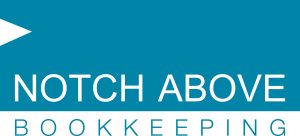The COVID crisis has prompted businesses to become more customer-centric
Those that don’t go down this road may struggle to compete.
Is your company collecting data that helps you understand your customers better and putting it to use when you engage with them?
If the answer is ‘no’, you’re behind the eight ball and it may be to your commercial detriment, perhaps catastrophically so, in the months and years to come.
That’s because the worst pandemic in a century didn’t just up-end economies and societies, it also transformed the way consumers acquire goods and services and interact with organisations.
Last year’s cyber surge
Australia, for example, saw an unprecedented surge in e-commerce activity as stuck-at-home shoppers let their fingers do the walking during April and May’s nationwide shutdowns and through the remainder of that strange, socially distant year.
NAB’s Online Retail Sales Index: January 2021 revealed Australians spent $45.61 billion on online retail between January 2020 and January 2021; a whopping 49.1 per cent increase on the previous year’s figures. That number, which represents around 12.9 per cent of the total retail trade estimate, is expected to continue growing, as shoppers eschew bricks and mortar experiences for the convenience and safety of digital browsing.
Australians aren’t just spending their hard-earned online. Increasingly, they’re using digital channels to research goods and services and interact with organisations before, during and after the purchase process.
For many organisations, that’s necessitated the adoption of additional digital channels – think web chat, SMS and apps – to allow customers to connect with them, whenever and wherever it suits.
Organising with the data deluge
The upshot of this dash to digital? A deluge of customer data pouring into organisations via multiple channels.
In many enterprises, that data is stored in a series of silos where it can be accessed and analysed, to obtain an understanding of a customer’s dealings with the company, via the channel in question.
Savvy businesses, however, are doing things differently. They’re using new generation customer data platforms (CDPs) to aggregate customer data from across all channels and sources – web, mobile, server and cloud. And they’re analysing it to create a complete picture of individual customers’ motivations, preferences and behaviour patterns.
So much so that Twilio Segment’s Customer Data Platform was processing over a trillion API calls a month by the end of 2020 – a 100 per cent increase on the previous year’s figure of 500 billion.
Keeping the customer satisfied
So, what are those ahead-of-the-curve businesses doing with the insights they’re amassing about their customers?
For most, the overarching goal is to create seamless, compelling customer experiences in real-time, in both the virtual and real-life realms. That’s because, in a crowded market, customer experience can be the only significant point of difference between an organisation and its competitors – and enough of a reason for one-time buyers to become loyal, repeat customers.
Hence, we’re seeing businesses use their aggregated data to inform digital advertising campaigns via Facebook, Pixel and Google ads, email marketing mailshots via Mailchimp and Braze, and interactions with customers via platforms like Salesforce, HubSpot and Zendesk.
Laggards lose out
And businesses that don’t take this data-driven approach to interacting with customers and delivering experiences that meet and exceed their expectations? Increasingly, they’ll find themselves left behind; struggling to remain relevant and compelling, at a time when cash-strapped and cost-conscious consumers have every reason not to spend.
Investing in a customer data platform is the starting point for every enterprise that’s serious about doing more with digital. For Australian businesses yet to take this high-tech step, the stakes are high and the clock is ticking.
Get onto cloud bookkeeping in your business
Xero is Australia’s most popular cloud-based bookkeeping and accounting software. Transform your business with real-time financial reports by making the switch to Xero.
Notch Above Bookkeeping are Platinum Certified Xero bookkeepers and BAS Agents. We help small businesses across Australia to prepare their BAS returns and streamline their bookkeeping processes, payroll and accounting records using cloud technology. Call us to find out how on 1300 015 130 today.
Article first published by Dynamic Business on 4 May 2021 at https://dynamicbusiness.com.au/topics/technology/business-customer-data-analysing-advice-tips-opinion.html








 2020 Notch Above Bookkeeping
2020 Notch Above Bookkeeping
